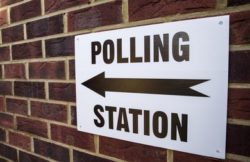Voter ID – An Assault on UK Democracy?

Photograph: Shuttershock
By Jacob Proffitt
As is the case for most democratic nations, individual politicians and their Governments are often only temporary features in UK politics. Indeed the semi-regular holding of free and fair elections has served as the defining constant hallmark of the UK political system for centuries.
This is not to suggest that the ways in which elections are carried out and officiated in the UK has remained unchanged, far from it. Rather extensive reform over the years has given rise to various distinct electoral systems, rules and procedures to the extent that an individual voter’s experience is changed dramatically based on their local area.
This brings me to the Government’s “Elections Bill” first introduced in Parliament in July 2021 and according to the Government delivers a key manifesto commitment to “strengthen the integrity of elections and ensure that our democracy remains secure, fair, modern and transparent”. The contents of the Bill are extensive, including proposals on the reform of postal voting, extending voting rights to EU nationals, changes to campaign rules, and removing restrictions on those who can accompany individuals with disabilities inside a polling station. Despite this broad scope, it is the part which would require voters to show identification (ID) at polling stations which has so far caused the most controversy.
The Government line on voter ID is that it is entirely necessary to protect the integrity of our elections, however this has been disputed by a variety of officials and organisations who claim that the proposed measures will restrict the number of people eligible to vote.
Whilst acknowledging that the list of acceptable forms of ID has been “widely drawn” the House of Commons Joint Committee on Human Rights, asserts that over 2 million people living across the UK will effectively be shut out of the voting process, and although the proposals are intended to reduce fraud, they highlight that recorded instances of such fraud are extraordinarily rare.
Another consequence of these measures is the disproportionate impact on various groups in society, such as older people, those living with disabilities and members of minority ethnic communities. Many of which are statistically less likely to have the mandated photo ID, and may also be hesitant to apply for the Voter Card.
It is also worth mentioning that this is not the first time Voter ID has been debated and (if passed) will not even be the first introduction of the practice in the UK. Since 2003 voters in Northern Ireland have had to show photo ID at the polling station, and interestingly voter turnout for general elections has averaged 61.54%, compared with the UK average of 65.8% during the same period. It must be emphasised however that these differences in turnout figures cannot be unequivocally attributed to Northern Ireland’s mandatory ID requirements. Additionally, studies which have tracked the impact of voter ID laws in the USA have actually determined that notifying voters of ID requirements did not negatively affect turnout, and certain messaging actually increased turnout (Green, Citrin, Levy 2014), suggesting that perhaps the negative impacts of Voter ID proposals on election turnout are not as certain as has been previously suggested.
In recent weeks both the Welsh Senedd and Scottish Parliament have refused legislative consent for the Bill; whilst legally this will have no impact on the Bills passage (owing to the intricacies of UK devolved power) it sends a strong political message. It should also be noted that the introduction of Voter ID would only be mandated for UK-wide General Elections, not regional elections to the Welsh or Scottish parliaments. Whilst this initially appears as another “quirk” of the UK’s devolved mixture of political and legal power/governance, I would argue that its likelihood to create a confusing two tiered system in which the requirement for voters to show Voter ID at some, but not all, polling stations would only serve to confuse voters, with increased voter confusion leading to increased voter apathy, depressing voter turnout further.
At the time of writing the Bill remains in its second reading in the House of Lords, whilst the short and long-term impacts of the proposals cannot be guaranteed (for good or bad) and despite the universal criticism that proposals on Voter ID have drawn, it seems unlikely the Government will alter course and drop them from the Bill.
Jacob Proffitt – MSc Political Science
